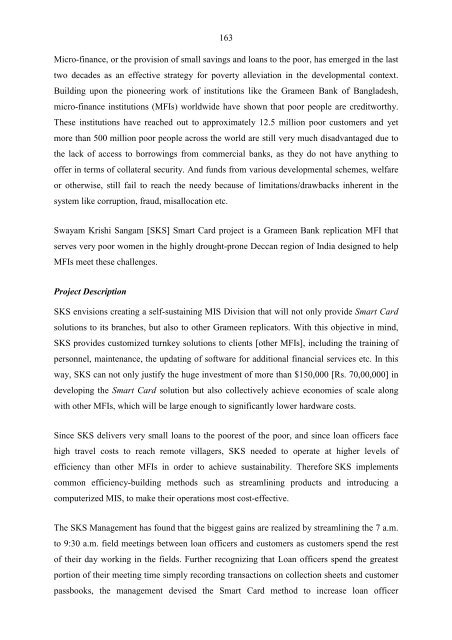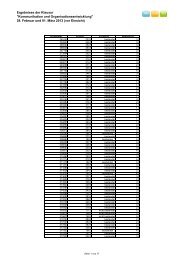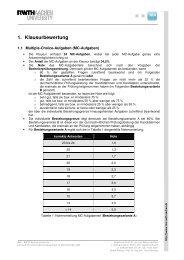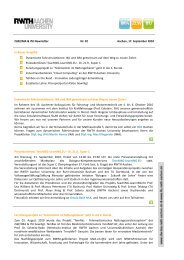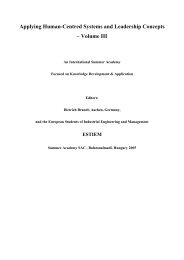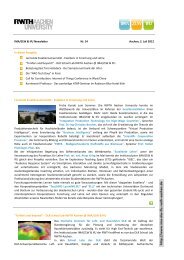Vol. II: Shaping Information and Communication ... - IMA,ZLW & IfU
Vol. II: Shaping Information and Communication ... - IMA,ZLW & IfU
Vol. II: Shaping Information and Communication ... - IMA,ZLW & IfU
You also want an ePaper? Increase the reach of your titles
YUMPU automatically turns print PDFs into web optimized ePapers that Google loves.
163<br />
Micro-finance, or the provision of small savings <strong>and</strong> loans to the poor, has emerged in the last<br />
two decades as an effective strategy for poverty alleviation in the developmental context.<br />
Building upon the pioneering work of institutions like the Grameen Bank of Bangladesh,<br />
micro-finance institutions (MFIs) worldwide have shown that poor people are creditworthy.<br />
These institutions have reached out to approximately 12.5 million poor customers <strong>and</strong> yet<br />
more than 500 million poor people across the world are still very much disadvantaged due to<br />
the lack of access to borrowings from commercial banks, as they do not have anything to<br />
offer in terms of collateral security. And funds from various developmental schemes, welfare<br />
or otherwise, still fail to reach the needy because of limitations/drawbacks inherent in the<br />
system like corruption, fraud, misallocation etc.<br />
Swayam Krishi Sangam [SKS] Smart Card project is a Grameen Bank replication MFI that<br />
serves very poor women in the highly drought-prone Deccan region of India designed to help<br />
MFIs meet these challenges.<br />
Project Description<br />
SKS envisions creating a self-sustaining MIS Division that will not only provide Smart Card<br />
solutions to its branches, but also to other Grameen replicators. With this objective in mind,<br />
SKS provides customized turnkey solutions to clients [other MFIs], including the training of<br />
personnel, maintenance, the updating of software for additional financial services etc. In this<br />
way, SKS can not only justify the huge investment of more than $150,000 [Rs. 70,00,000] in<br />
developing the Smart Card solution but also collectively achieve economies of scale along<br />
with other MFIs, which will be large enough to significantly lower hardware costs.<br />
Since SKS delivers very small loans to the poorest of the poor, <strong>and</strong> since loan officers face<br />
high travel costs to reach remote villagers, SKS needed to operate at higher levels of<br />
efficiency than other MFIs in order to achieve sustainability. Therefore SKS implements<br />
common efficiency-building methods such as streamlining products <strong>and</strong> introducing a<br />
computerized MIS, to make their operations most cost-effective.<br />
The SKS Management has found that the biggest gains are realized by streamlining the 7 a.m.<br />
to 9:30 a.m. field meetings between loan officers <strong>and</strong> customers as customers spend the rest<br />
of their day working in the fields. Further recognizing that Loan officers spend the greatest<br />
portion of their meeting time simply recording transactions on collection sheets <strong>and</strong> customer<br />
passbooks, the management devised the Smart Card method to increase loan officer


